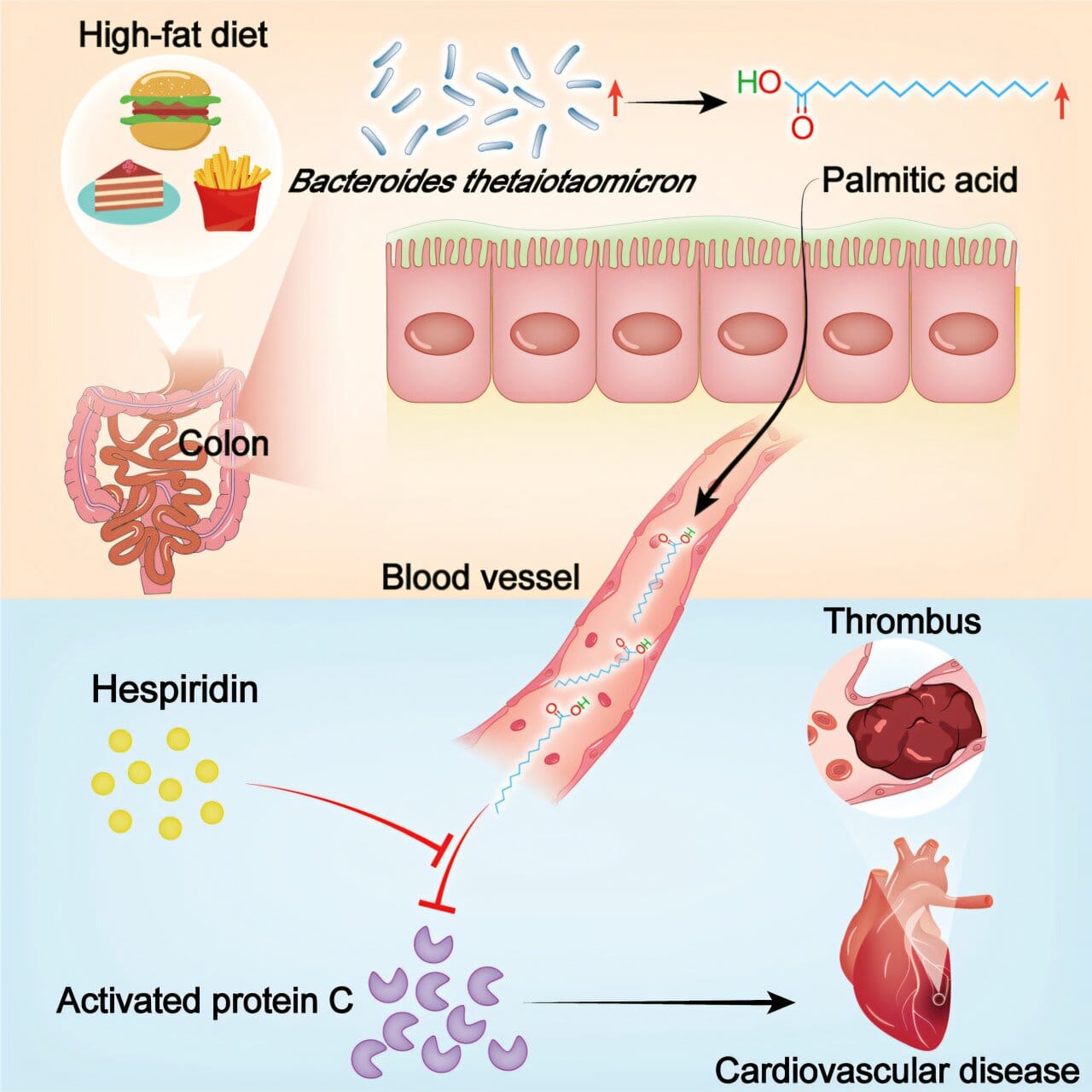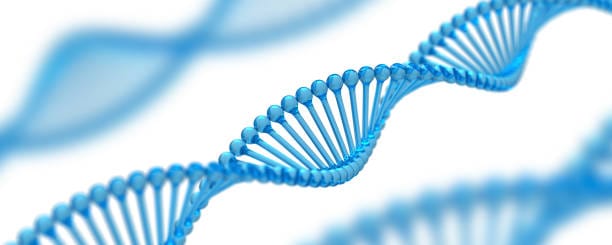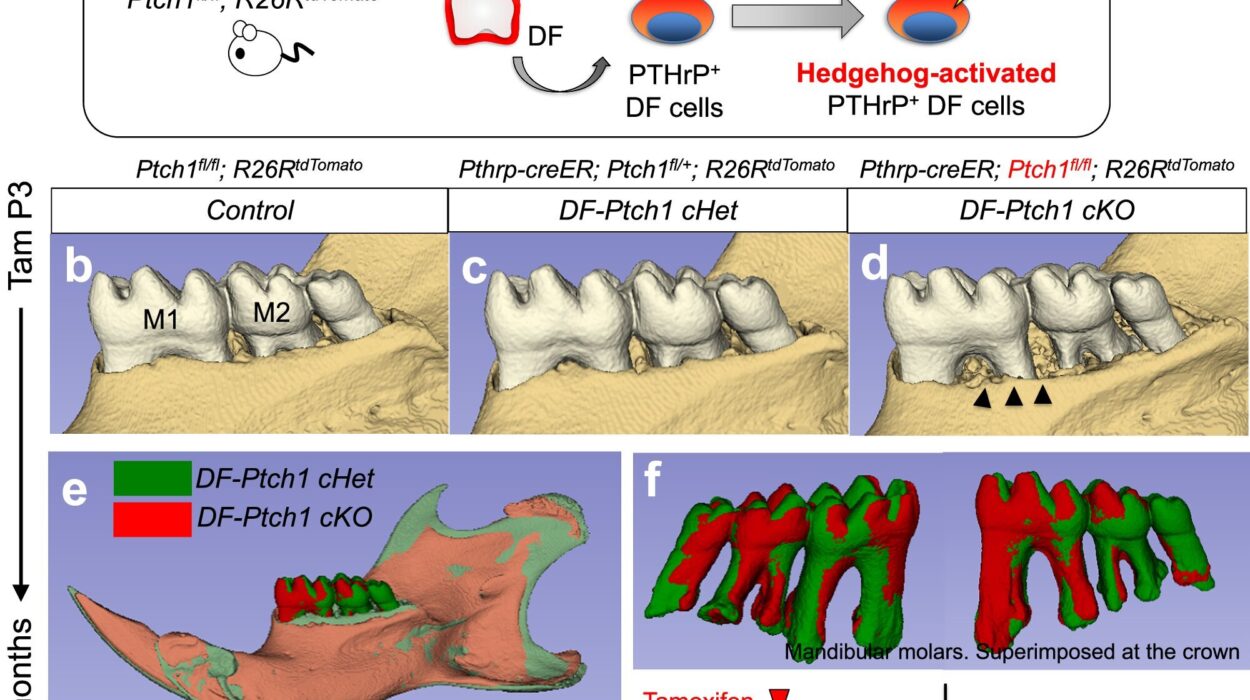Scientists have long known that diet shapes our heart health. But a new study has uncovered a surprising twist: certain gut bacteria may help turn dietary fats into a dangerous clot-promoting molecule — raising the risk of life-threatening cardiovascular events.
In research published in Cell Reports Medicine, an international team led by Prof. Lai Ren of the Kunming Institute of Zoology, Chinese Academy of Sciences, and Prof. Ni Heyu from the University of Toronto has linked a high-fat diet, gut microbes, and a fatty acid called palmitic acid (PA) to increased blood clot formation — a key driver of heart attacks and strokes.
From the Gut to the Bloodstream
Palmitic acid is a common saturated fatty acid found in foods like red meat, butter, palm oil, and many processed snacks. While our bodies can also make it naturally, elevated levels of PA have long been associated with cardiovascular disease (CVD). Until now, however, scientists weren’t sure whether gut bacteria played any role in controlling how much of this fat circulates in our blood.
By comparing patients with CVD to healthy individuals, the team found that those with heart disease not only had higher levels of circulating PA, but also showed signs of “hypercoagulation” — blood that clots more easily than normal. In these patients, one bacterial group stood out: Bacteroides thetaiotaomicron (BT), which appeared at more than twice the levels seen in healthy controls.
How a Microbe Tips the Balance
The researchers dug deeper to see if BT could directly influence clotting risk. Their experiments revealed that BT strains could produce palmitic acid in the lab, and when mice were colonized with BT, their blood PA levels rose — along with a measurable increase in clotting activity.
The culprit? PA appears to block the action of activated protein C (APC), one of the body’s key natural anticoagulants. Without APC working properly, blood clots form more readily. On top of that, PA stimulates platelets, the tiny cell fragments that clump together during clot formation, making them more active and prone to clotting.
Diet as the Spark
The study also showed how our eating habits feed into this dangerous chain reaction. A high-fat diet encourages BT to thrive in the gut, which in turn boosts PA production. This elevated PA then sets the stage for excessive clotting — a process that can ultimately block blood flow to the heart or brain.
“This work highlights a gut–diet–fatty acid pathway that we didn’t fully appreciate before,” said Prof. Ren. “It’s a reminder that what we eat doesn’t just affect cholesterol or blood pressure — it can fundamentally reprogram the microbiome in ways that influence clotting risk.”
A Glimmer of Hope: Hesperidin
There’s good news, too. The researchers discovered that hesperidin — a plant compound abundant in citrus fruits — can block the interaction between PA and APC. In both lab and animal tests, hesperidin prevented the hypercoagulation triggered by PA or BT colonization.
This suggests that hesperidin-rich foods or supplements could one day help reduce clotting risk, especially for people who consume higher-fat diets or have microbiomes rich in PA-producing bacteria.
A New Target for Heart Health
Cardiovascular disease remains the world’s leading killer, claiming nearly 18 million lives annually. While much attention has focused on controlling cholesterol, blood pressure, and inflammation, this study adds a new target: the complex interplay between diet, the gut microbiome, and blood clotting.
The findings hint at a future where doctors could screen patients for PA-producing gut bacteria, tailor diets to limit BT overgrowth, or prescribe bioflavonoids like hesperidin as a preventive measure.
“Our gut is more than just a digestive organ,” said Prof. Ni. “It’s a chemical factory that can either protect us or put us at risk — and now we know palmitic acid is one of its more dangerous products.”
More information: Xiaoshan Huang et al, High-fat diet increases circulating palmitic acid produced by gut Bacteroides thetaiotaomicron to promote thrombosis, Cell Reports Medicine (2025). DOI: 10.1016/j.xcrm.2025.102260






